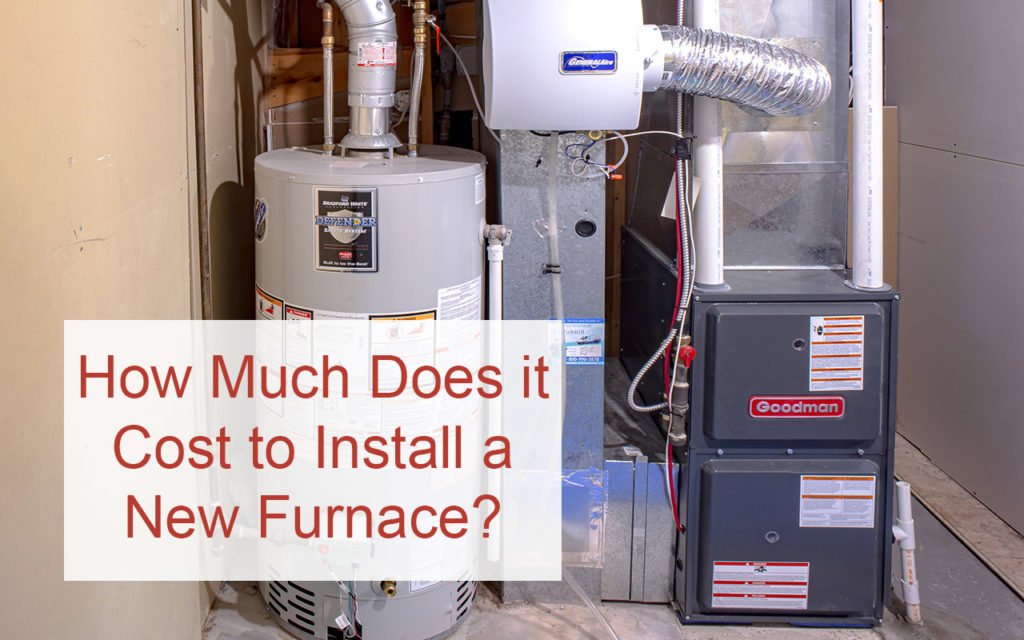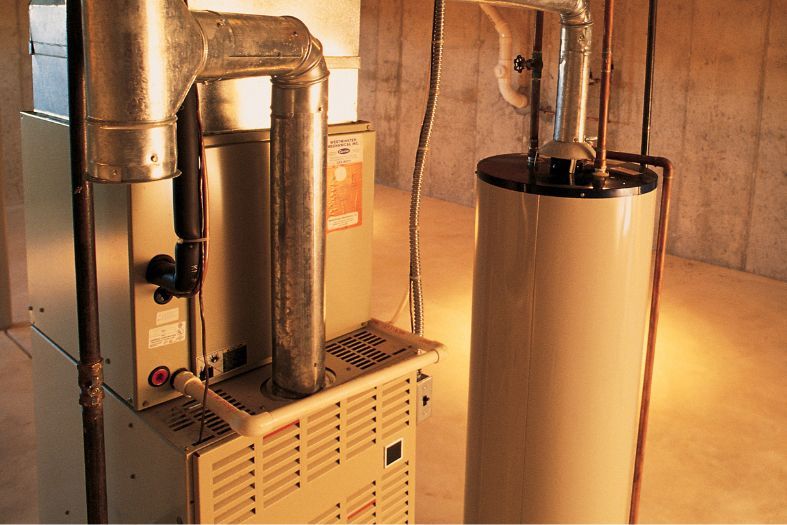Disclosure: This post contains affiliate links and I will be compensated if you make a purchase after clicking through my links. Learn More
Understanding the furnace and water heater replacement cost is crucial for homeowners seeking to maintain a comfortable living environment. Whether you’re facing an unexpected breakdown or planning a proactive upgrade, knowing what to expect financially can help you make informed decisions.
In this detailed guide, I’ll explore the costs associated with replacing these essential home appliances, provide insights on factors influencing these costs, and share tips for making the best choices for your home. Let’s dive in!
:max_bytes(150000):strip_icc()/Gas-Furnace-and-Water-Heater-86517326-576e8f253df78cb62c22474c.jpg)
Source: www.thespruce.com
Understanding Furnace and Water Heater Costs
What Is the Average Cost of Replacement?
When it comes to replacing a furnace or water heater, costs can vary widely based on several factors. On average, homeowners can expect to pay:
- Furnace Replacement: Between $2,500 and $7,500, depending on the type, size, and efficiency of the unit.
- Water Heater Replacement: Typically ranges from $800 to $3,500, influenced by the type (tank vs. tankless), capacity, and installation complexity.
These estimates can change based on your location, the specific models you choose, and any additional work required during installation.
:strip_icc()/GettyImages-86517326-9d7eb8e3ec414df7bae12297f423ac26.jpg)
Source: www.bhg.com
Factors Influencing Replacement Costs
Several elements can impact the overall cost of replacing your furnace and water heater. Here are some key factors to consider:
Type of Unit: Different types of furnaces (gas, electric, oil) and water heaters (traditional, tankless, solar) come with varying price tags.
Energy Efficiency: Higher efficiency models often have a higher upfront cost but can save you money on energy bills in the long run.
Installation Complexity: If your home requires additional ductwork, plumbing adjustments, or electrical upgrades, installation costs can increase significantly.
Labor Costs: Depending on your location, labor costs can vary. Urban areas tend to have higher labor rates than rural areas.
Permits and Inspections: Some jurisdictions require permits and inspections for new installations, which can add to your total cost.
Old Unit Removal: If your old furnace or water heater needs to be removed and disposed of, this can also impact the total cost.
Types of Furnaces and Their Costs
Gas Furnaces
Gas furnaces are popular for their efficiency and lower operating costs. The average replacement cost ranges from $2,500 to $6,000.
Pros:
- Generally lower energy costs.
- Faster heating times.
Cons:
- Requires a gas line, which can add installation costs.
Electric Furnaces
Electric furnaces are easier to install and maintain, with costs ranging from $2,000 to $5,000.
Pros:
- Lower upfront costs.
- No need for gas lines.
Cons:
- Higher operating costs compared to gas.
Oil Furnaces
Oil furnaces are less common but still used in some areas. Replacement costs range from $3,000 to $7,500.
Pros:
- Can be more efficient in colder climates.
Cons:
- Requires regular maintenance and fuel delivery.
Types of Water Heaters and Their Costs
Traditional Water Heaters
These are the most common type, with costs ranging from $800 to $2,500 depending on capacity and brand.
Pros:
- Lower upfront cost.
- Simple installation.
Cons:
- Limited hot water supply; recovery time can be slow.
Tankless Water Heaters
Tankless models provide hot water on demand and typically cost between $1,500 and $3,500.
Pros:
- Unlimited hot water supply.
- More energy-efficient.
Cons:
- Higher initial cost and may require upgrades to gas lines or electrical systems.
Solar Water Heaters
Solar water heaters can be a sustainable choice, costing between $3,000 and $7,000.
Pros:
- Environmentally friendly and can reduce energy bills.
Cons:
- High initial investment and dependent on sunlight availability.

Source: cuisinesrenoves.com
How to Budget for Replacement Costs
Assessing Your Current System
Before making any decisions, evaluate your current furnace and water heater. Consider their age, efficiency, and any recent issues. If your systems are over 15 years old, it may be time to consider replacements.
Getting Multiple Quotes
I recommend obtaining at least three quotes from licensed contractors. This not only gives you a better sense of the market rate but also allows you to compare services and warranties.
Planning for Additional Costs
Be sure to budget for potential additional costs, such as:
- Ductwork or plumbing modifications: If your new unit requires different connections.
- Permits: Check local regulations regarding installation permits.
- Maintenance plans: Consider setting aside funds for regular maintenance to prolong the life of your new systems.
Financing Options
Many homeowners opt for financing options when replacing their furnace or water heater. Look for:
- Home improvement loans: Often come with lower interest rates.
- Manufacturer financing: Some manufacturers offer special financing for their products.
- Credit cards: While not always ideal due to high interest rates, they can provide immediate purchasing power.
Common Misconceptions About Replacement Costs
“I Can Just Repair My Old Unit”
While repairs may seem cheaper upfront, they can add up over time. If your furnace or water heater is frequently breaking down, it might be more cost-effective to replace it.
“All Units Are the Same”
Not all furnaces and water heaters are created equal. Investing in a higher quality, more efficient model can save you money in the long run.
“Installation Is Always the Same”
Installation costs can vary significantly based on the complexity of the job. Always discuss installation specifics with your contractor.
:strip_icc()/GettyImages-1276358762-b156117de67d430ea215544a93d53e2e.jpg)
Source: www.bhg.com
FAQs About Furnace and Water Heater Replacement Cost
How often should I replace my furnace and water heater?
Most furnaces last about 15-20 years, while traditional water heaters typically last 10-15 years. If your systems are approaching these ages, consider replacements.
What are the signs I need to replace my furnace or water heater?
Look for signs such as unusual noises, inconsistent heating, frequent breakdowns, or rust and leaks.
Can I install a new furnace or water heater myself?
While DIY installation is possible, it’s often best to hire a licensed professional to ensure safety and compliance with local codes.
How can I improve the energy efficiency of my systems?
Regular maintenance, sealing ductwork, and upgrading insulation can improve efficiency. Consider investing in high-efficiency models when replacing.
Are there any tax credits or rebates available for replacing my furnace or water heater?
Many states offer incentives for energy-efficient upgrades. Check with your local utility company or government website for available programs.

Source: geehvac.com
Final Thoughts
Understanding the furnace and water heater replacement cost is essential for making informed decisions about your home’s heating and hot water systems. By exploring the various options, costs, and factors influencing these decisions, you can ensure that you choose the best solutions for your needs. Remember to assess your current systems, gather multiple quotes, and consider financing options to make the process smoother.
I encourage you to take action today—whether it’s scheduling an inspection of your current systems or researching the best replacement options available. The comfort and efficiency of your home depend on it!


